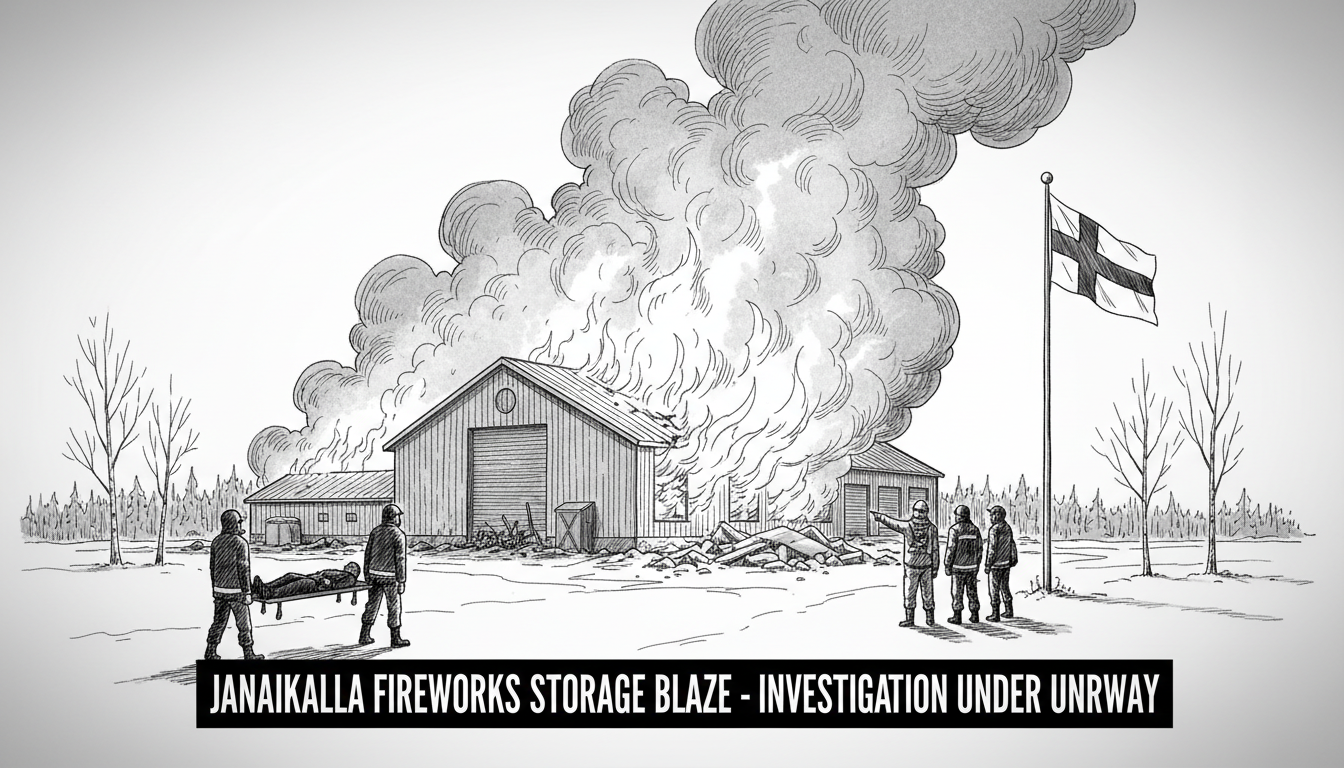Safety authorities are investigating a fireworks explosion at a storage facility in Janakkala, Finland. Two workers sustained minor injuries during the incident. The explosion occurred while employees were transferring professional-grade fireworks into containers. Multiple containers containing commercial fireworks caught fire during the operation.
The Finnish Safety and Chemicals Agency (Tukes) confirmed the facility held proper permits for explosive storage and fireworks importation. Officials described the accident as unusual for this type of regulated facility. The investigation aims to identify what factors led to the fireworks ignition in the storage area.
Tukes expects to complete their investigation by March 15, 2026. The agency plans to develop recommendations to prevent similar incidents and improve safety protocols. This thorough approach reflects Finland's strict regulatory environment for hazardous materials.
Finland maintains rigorous safety standards for fireworks storage and handling. The country has one of Europe's most comprehensive chemical safety frameworks. All facilities storing explosives require multiple permits and regular inspections. This system typically prevents serious accidents at licensed locations.
The Janakkala incident raises questions about safety procedures during routine operations. Even permitted facilities can experience unexpected failures. The investigation will examine whether proper protocols were followed during the container transfer process. It will also assess equipment maintenance and staff training records.
Fireworks regulations in Nordic countries rank among the world's strictest. Finland allows consumer fireworks sales only around New Year's Eve. Professional displays require special permits and safety plans. This controlled approach minimizes risks but cannot eliminate all dangers.
The injured workers received medical treatment for minor wounds. Their quick recovery suggests safety measures partially succeeded. Proper emergency response likely prevented more serious consequences. The facility's location in a sparsely populated area also reduced potential collateral damage.
Similar incidents remain rare in Nordic countries. Sweden experienced a fireworks warehouse explosion in 2020 that caused significant damage. Norway tightened fireworks regulations after several accidents in recent years. Denmark maintains particularly strict rules following past tragedies.
International readers should note Finland's generally excellent safety record. This incident represents an exception rather than common practice. The thorough investigation demonstrates the country's commitment to transparency and continuous safety improvement. The findings could influence fireworks regulations across the Nordic region.
Local residents expressed concern but acknowledged the facility's previously clean safety record. Janakkala municipality will review the investigation results. They may consider tighter zoning restrictions for hazardous material storage. The incident highlights the balance communities strike between economic activity and public safety.

